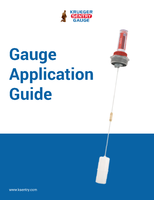Hybrid Profiler combines thin film, optical capabilities.
Share:
Press Release Summary:

As combined thin film and dimensional optical profiler, CCI SunStar merges non-contact dimensional measurement capability with thin and thick film technology. Integral 4 million pixel camera enables Hi-Res imaging, and film thickness measurement is possible from 5 µ down to 300 nm or less. While auto-range and auto-fringe-find functionality facilitates use, single mode of operation over all scan ranges lends to data reliability. Closed loop Z scanning mechanism is also standard.
Original Press Release:
Taylor Hobson Launches CCI SunStar
Taylor Hobson launches CCI SunStar, leading the world in the next generation of combined thin film and dimensional optical profilers.
This instrument merges world leading non-contact dimensional measurement capability with advanced thin and thick film technology.
The CCI SunStar is able to meet the most demanding application challenges, including 1st and 2nd generation Solar P-V, High power LED, Displays and Vacuum Coatings.
The unique features of the CCI SunStar include:
One of the new and exciting application areas is the PV Solar Cells.
Recent developments in the design and manufacturing of PV solar cells offer improvements in efficiency and reduction in cost. These advances are increasing the use of solar cells to replace traditional energy sources.
Solar cell design
There are multiple approaches to solar cell design and the different approaches are often divided into 3 separate categories; first generation, second generation and third generation.
First generation solar cells
These are produced using crystalline silicon. This is the tradition solar cell approach and the majority of current solar cells are produced using this technology.
Controlling the depth of scribe lines and the texture of the surface are important parts of solar cell manufacture. The Talysurf CCI is ideal for looking at these parameters in a single measurement. The roughness and trench depth can both be studied at the same time because every measurement has sub nanometre resolution, regardless of the scan range.
Typically the whole measurement and analysis takes less than 1 minute to set up and measure (using auto-fringe-find and auto-range). The average trench depth is the equivalent of over 2,000 stylus measurements and over 4 million data points are collected in each measurement. The large number of data points allows the study of surface roughness at the same time as the trench depth.
The benefit of this multi analysis approach is that it speeds up the metrology involved in process control, making it more cost effective.
Second generation solar cells
These are based on thin film semiconductor materials. This design of solar cell is now becoming more common and it is expected that production of second generation solar cells will increase dramatically in the next few years.
Measurement of thin films using optical techniques can present some potential problems. The main issues arise from different signals from different layers influencing the final measurement data and producing an incorrect answer.
It is possible to measure the thickness of semi transparent film coating when it is greater than 1-2 micrometres and less than about 20 micrometres using Thick Film analysis. The high z resolution of the Coherence Correlation Interferometry (CCI) technique makes it an ideal method for measuring this film thickness because of the sub nanometre resolution over this range.
For films thinner than 1 - 2 micrometres a different approach has to be used. Taylor Hobson has released its film thickness software for measuring these thinner films on the CCI Sunstar interferometer. The CCI Sunstar is capable of measuring film thicknesses of semi transparent films from 5 micrometres down to 300 nm or less. The range of thickness that can be measured will vary from material to material depending on the optical properties of the film.
The film thickness software is suitable for measuring many types of film including Cadmium Telluride (CdTe), and Copper Indium Gallium Diselenide (CIGS), Indium tin oxide (ITO), Zinc Oxide and Titanium Dioxide which are often found in the solar cells.
Third generation solar cells
This term is often used to describe new approaches to photovoltaic solar cell design. The flexibility of the CCI SunStar makes it ideal for the study of the new materials and structures often used in these solar cells.
Taylor Hobson is a leader in ultra-precision measurement instruments that operate at the highest levels of accuracy within the field of surface and form metrology. It offers contact and non-contact measurement solutions for the most demanding applications in markets ranging from optics and power train manufacture to nanotechnology research and provides client support worldwide. It is a unit of AMETEK, Inc, a leading global manufacturer of electronic instruments and electromechanical devices with annual sales of more than $2.5 billion.




